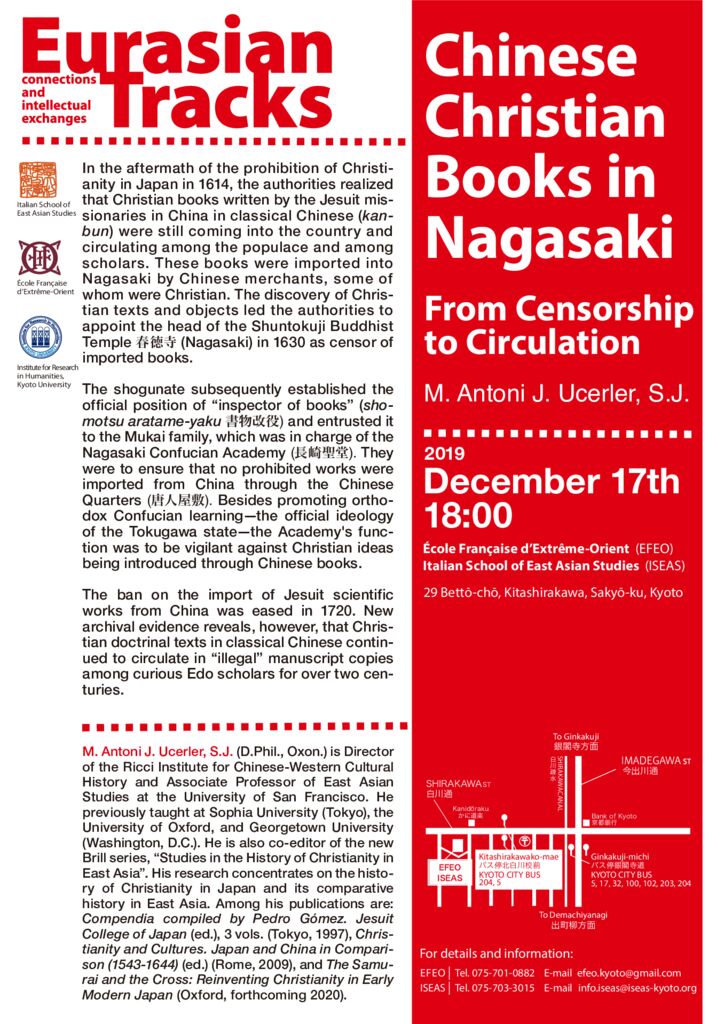In the aftermath of the prohibition of Christianity in Japan in 1614, the authorities realized that Christian books written by the Jesuit missionaries in China in classical Chinese (kanbun) were still coming into the country and circulating among the populace and among scholars. These books were imported into Nagasaki by Chinese merchants, some of whom were Christian. The discovery of Christian texts and objects led the authorities to appoint the head of the Shuntokuji Buddhist Temple 春徳寺 (Nagasaki) in 1630 as censor of imported books.
The shogunate subsequently established the official position of “inspector of books” (shomotsu aratame-yaku 書物改役) and entrusted it to the Mukai family, which was in charge of the Nagasaki Confucian Academy (長崎聖堂). They were to ensure that no prohibited works were imported from China through the Chinese Quarters (唐人屋敷). Besides promoting orthodox Confucian learning—the official ideology of the Tokugawa state—the Academy’s function was to be vigilant against Christian ideas being introduced through Chinese books.
The ban on the import of Jesuit scientific works from China was eased in 1720. New archival evidence reveals, however, that Christian doctrinal texts in classical Chinese continued to circulate in “illegal” manuscript copies among curious Edo scholars for over two centuries.
M. Antoni J. Ucerler, S.J. (D.Phil., Oxon.) is Director of the Ricci Institute for Chinese-Western Cultural History and Associate Professor of East Asian Studies at the University of San Francisco. He previously taught at Sophia University (Tokyo), the University of Oxford, and Georgetown University (Washington, D.C.) He is also co-editor of the new Brill series, Studies in the History of Christianity in East Asia. His research concentrates on the history of Christianity in Japan and its comparative history in East Asia. Among his publications are: Compendia compiled by Pedro Gómez. Jesuit College of Japan, (ed.), 3 vols. (Tokyo, 1997), Christianity and Cultures. Japan and China in Comparison (1543-1644) (ed.) (Rome, 2009), and The Samurai and the Cross: Reinventing Christianity in Early Modern Japan (Oxford, forthcoming 2020).
